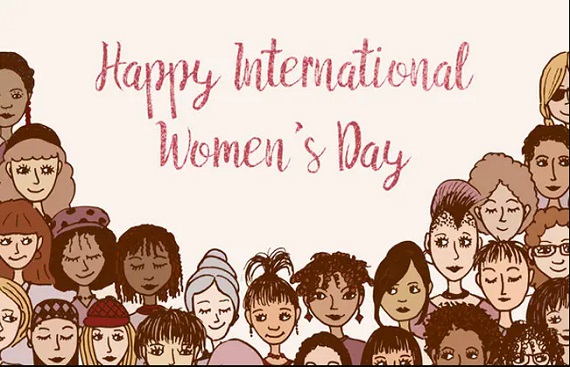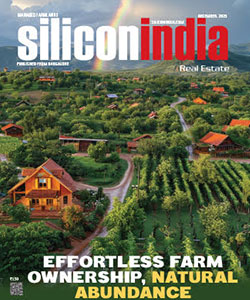International Women's Day 2022: Breaking Stereotypes, One year at a Time

For decades, International Women’s Day has been celebrated on March 8 to mark women's social, economic, cultural, and political achievements in various spheres. The day also represents a focal point in the women’s rights movement, attention to gender equality, violence and abuse against women, reproductive rights, and action for accelerating gender parity.
Every year, the United Nations give a powerful theme to demonstrate the role and status of women in our society. Hence, the United Nation's theme for International Women's Day 2022 observance is "Gender equality today for a sustainable tomorrow" in honour and celebration of the women and girls who are leading the charge on climate change adaptation and response and acknowledging their leadership and contribution towards a sustainable future. "The year 2022 is pivotal for achieving gender equality in the context of climate change and environmental and disaster risk reduction, which are some of the greatest global challenges of the twenty-first century. Without gender equality today, a sustainable future, and an equal future remains beyond our reach.," UN Women's website says.
![]()
In addition, the campaign theme for the year is #BreakTheBias. Whether deliberate or unconscious, bias creates difficulty for women to move ahead. Knowing that bias exists isn't enough. Action is required to balance the playing field.
A Glimpse of the Journey
![]()
Over the years, the world has witnessed the impact of the day and evolution towards women, with the first one in 1911. On March 8, 2022, it will be the 111th International Women's Day. The hundred years' journey would not be as easy as it looks. Let's look back at the IWD themes over the years to glimpse the journey and tribute to the people's contribution.
The theme for International Women’s Day, 8 March 2021, was “Women in leadership: Achieving an equal future in a COVID-19 world.” The UN demonstrated the theme to celebrate the tremendous efforts of women and girls worldwide in shaping a more equal future and recovery from the COVID-19 pandemic.
It was also associated with the priority theme of the 65th session of the Commission on the Status of Women, "Women's full and effective participation and decision-making in public life, as well as the elimination of violence, for achieving gender equality and the empowerment of all women and girls", and the flagship Generation Equality campaign, which calls for women's right to decision-making in all areas of life, equal pay, equal sharing of unpaid care and domestic work, an end all kinds of violence against women and girls, and health-care services that respond to their needs.
The theme for International Women’s Day (8 March) 2020 was, I am Generation Equality: Realizing Women’s Rights. The theme was allied with UN Women’s new multigenerational campaign, Generation Equality, which marks the 25th anniversary of the Beijing Declaration and Platforms for Action. Adopted in 1995 at the Fourth World Conference on Women in Beijing, China, the Beijing Platform for Action was renowned as the most progressive roadmap for empowering women and girls everywhere.
The theme for International Women’s Day (8 March) 2019 was “Think Equal, Build Smart, Innovate for Change”. It placed innovation by women and girls, for women and girls, at the heart of efforts to reach gender equality.
Achieving a gender-equal world needs social innovations that work for all gender and leave no one behind. From urban planning that concentrates on community safety to e-learning platforms that take classrooms to women and girls, affordable and quality childcare centres, and technology shaped by women, innovation could take the race for gender equality to its finishing line by 2030.
It begins with ensuring that women's and girls' requirements and experiences are integrated at the inception of technology and innovations. It implies building smart solutions that go beyond acknowledging the gender gaps to addressing the needs of people, unlike genderizing. And ultimately, it needs innovations that interrupt business as usual, paying attention to how and by whom technology is used and accessed, and ensuring that women and girls play a significant role in emerging industries.
![]()
The theme for International Women’s Day, 8 March 2018, was “Time is Now: Rural and urban activists transforming women’s lives”. The theme came on the heels of the unprecedented global movement for women’s rights, equality, and justice in that year. Sexual harassment, violence and discrimination against women had captured headlines and public discourse, propelled by a rising determination for change.
People worldwide were assembling for a future that would be more equal. It had taken the shape of global marches and campaigns, including #MeToo in the United States of America and its companions in other countries, protesting against sexual harassment and violence, such as #YoTambien in Mexico, Spain, South America and beyond, #QuellaVoltaChe in Italy, #BalanceTonPorc in France and #Ana_kaman in the Arab States; “Ni Una Menos” (‘not one less’), a campaign against femicide that originated in Argentina; to name a few, on issues ranging from equal pay to women’s political representation.
The 2017 theme for International Women’s Day, 8 March, focused on “Women in the Changing World of Work: Planet 50-50 by 2030”. The world of work is transforming, with substantial implications for women. Even though technological advances and globalization bring unprecedented opportunities for those who can access them, there is still expanding informality of labour, income inequality and humanitarian crises. Against this backdrop, only 50 per cent of working-age women were represented in the labour force internationally, compared to 76 per cent of men.
Reaching gender equality in the world of work is crucial for sustainable development. The United Nations observance on 8 March would urge the actors to Step It Up for Gender Equality towards a Planet 50-50 by 2030 by confirming that the world of work works for all women.
Nevertheless, we could not assure that all the themes have entirely succeeded in their time. The themes are still in process, and I believe every individual is participating at their best to make the world better for humanity. Moreover, the year's most significant achievement is the latest National Family Health Survey (NFHS 2019-21); India has 1,020 females per 1,000 males. It shows a step closer towards a better world to live in. And we wish a very Happy International Women's Day to all the ladies out there.
Read More News :
Railways Minister wishes for International Women's Day by sharing a video
PM Modi Govt will focus on women empowerment with emphasis on dignity, prospect



